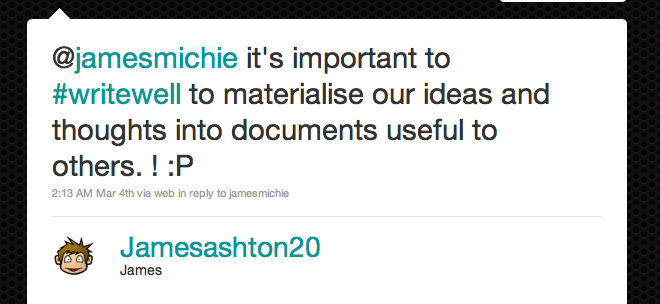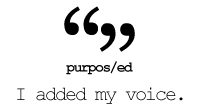On Tuesday afternoon when the majority of students were making their way home, 15 dedicated Year 11s remained behind to take part in a project that I am leading with five colleagues from the English department. The short term aim is to improve on these, already, talented writers skills, hopefully helping them to achieve A*s in English. The long term aim is to help them become better and more critical writers, oozing with confidence whenever they put pen to paper or finger to keys.
100 Words
The project is running for ten weeks and includes a variety of facets. One of which is teachers, parents, writers and others offering 100 words on why being able to #writewell is important.
Here’s a flavour of what has been shared so far:
“With a talent such as writing well, it allows the reader to feel your passion, feed off your enthusiasm or understand your reasoning which all help in your path to success.” (Corrie Fenner, Teacher of PE)
“From my perspective, if a candidate can’t write their CV and covering letter well, how can I trust that they will accurately “proof read” a press release, direct mail piece or html email?” (Liz Wilkins, Senior Marketing Manager for Education, Adobe Systems Europe, Ltd)
“My favourite meal consists of a glass of milk, crisps and egg sandwiches.
If it wasn’t for the comma you might think I had invented something called “milk crisps”, which could be the dried up flakey bits just around the rim of a plastic bottle of milk – but that would be disgusting!” (Julian Smith, Leader for Drama and Performing Arts)
140 Characters
I also asked my awesome PLN to get involved via Twitter and offer 140 characters on why being able to #writewell is important. I loved this one:

Student Blogging
The students involvement centres around a series of taught sessions, seminars and individual tutorials; input from professional writers, including: an author, editor and professional copy-writer; and most importantly it includes the student’s writing which will be produced on their own blogs – putting their words out in to the public sphere to be praised and scrutinised.
It is our hope that the public forum combined with a range of creative exercises and experiences will help these talented writers to fully realise their potential and also eradicate some lingering inaccuracies that find their way into the students work. It is our hope that we will help them to see that being able to #writewell is vital to their futures.
For ease, a lot of the material related to the project is being collated and managed via our schools VLE so I am unable to share all of it with you. However, the students’ blogs (the heart of the project) can be found in the sidebar on the right of the English department blog. If you are an educator, parent or fellow student, please take a moment or two to read some of the students’ posts and perhaps even leave a comment. Please offer praise where it is due but also offer some advice and guidance on how the student could further improve the quality of their writing. This I believe is integral to the success of the project.
Each week the students will be given a specific writing activity. The opening task asked them to write about an object that has significant meaning to them. Here are the first three posts that were submitted, I think they have gotten off to a great start:
As the project evolves the writing activities will be supplemented by reflection and evaluation activities. We also expect the students to comment on each others writing. And we hope for there to be the opportunity for some collaborative writing to occur as well.
If you are on Twitter you can follow the project via the hash tag: #writewell. And if you have a few minutes perhaps you could tweet about ‘why it is important to #writewell’?
We hope that you enjoy reading the students’ posts as well as watching the project grow as much as we expect to.
—
This was an edited version of the post I submitted to English @ CCC.

